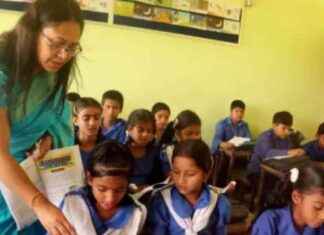India’s Relationship with the People, Not a Group: Khokon
In a recent statement, Khayrul Kabir Khokon, the Joint Secretary of the BNP and the convener of the BNP in Narshingdi district, emphasized that India’s relationship should be with the people, not a specific group. This assertion comes in light of the growing tensions between the two nations due to the absence of the people’s presence in the relationship.
Khokon expressed his desire for India to be a friend of Bangladesh, fostering a relationship based on friendship. He highlighted the unfortunate incidents where the Border Security Force (BSF) has been indiscriminately firing on civilians, leading to loss of lives. He also mentioned that labeling a smaller nation as insignificant is a form of intimidation.
The statement was made during a discussion organized by the Narshingdi BNP to commemorate the 89th birth anniversary of the founding president of the party, Shaheed President Ziaur Rahman.
**Historical Context and Critique of Awami League**
Khokon went on to criticize the Awami League, stating that their history is marred by dishonesty and betrayal. He claimed that the Awami League has not done anything substantial for the country and has been preoccupied with their own interests. Referring to the Wan Eleven scandal, where the government was involved in corrupt practices, he pointed out that the allegations against the Awami League have been proven.
**Attendees and Commentary**
The event was attended by several members of the Narshingdi BNP, including Secretary Manjur Elahi, former MP and convener of the BNP in the district, Sardar Sakhaowat Hossain Bakul, Convener Tofazzal Hossain Master, VP Jalil, Abdul Baset, Faruk Uddin Bhuiya, former editor of the district’s student wing Abdur Rouf Fakir Roni, and the president of the district’s student wing, Siddiqur Rahman Nahid, among other party leaders.
In conclusion, Khokon’s remarks shed light on the complex dynamics of international relationships and the importance of prioritizing people over political affiliations in fostering strong diplomatic ties. His critique of the Awami League serves as a reminder of the need for accountability and transparency in governance. As tensions between India and Bangladesh continue to simmer, Khokon’s call for a people-centric approach to diplomacy resonates with the broader conversation on international relations.



























